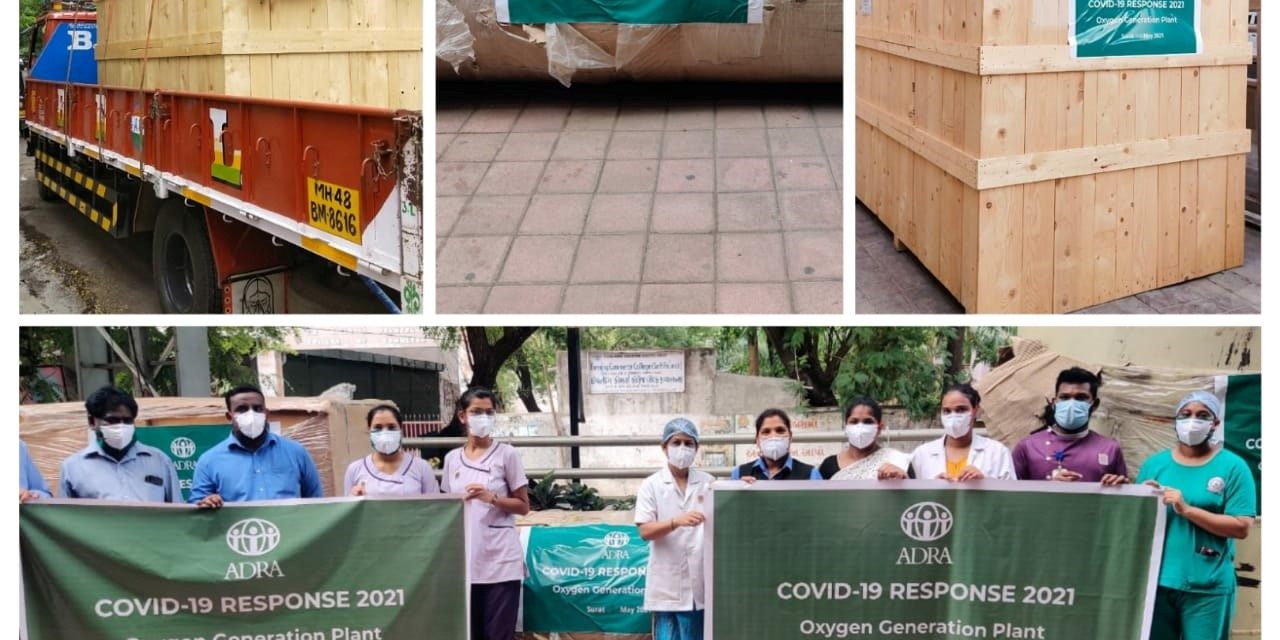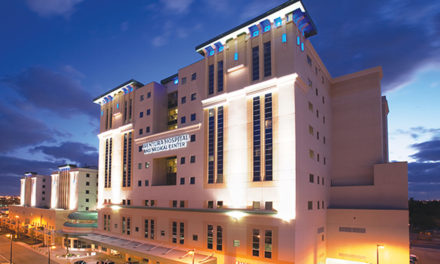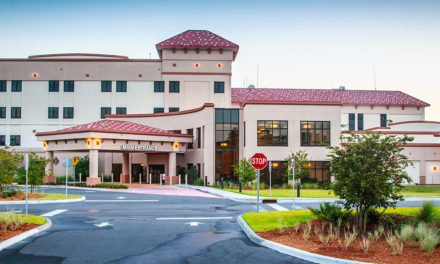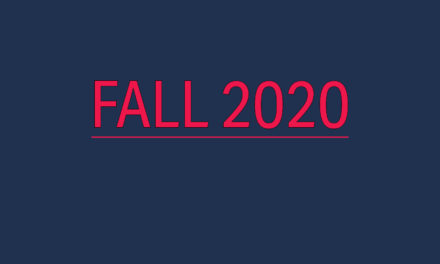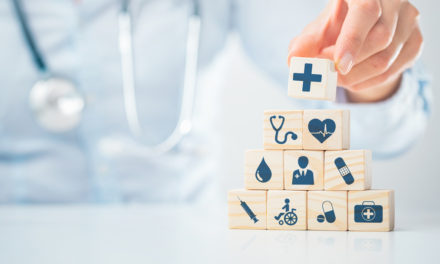Forging International Care Connections During the Delta Surge: A Reflection on Providing COVID-19 Medical Relief to India
Just as Florida came off its second COVID-19 surge this past spring and mass vaccination efforts were in full swing, the Delta variant began ravaging India. The headlines of death and despair dominated the news, and the impact on one of the most populous countries in the world was devastating. At its peak in early May, India experienced one of the largest COVID-19 surges the world had seen, with more than 400,000 new infections and 4,000 deaths reported each day.
These were more than headlines to me. They hit close to my home and heart. My parents are first-generation immigrants from India, and I continue to have deep roots in the country. Many of my relatives are still there, including two of my cousins who are primary care physicians. I also have numerous physician colleagues I have met and stayed connected with over the years who live and work in India.
As this new stage of the pandemic progressed, I kept hearing more and more first-hand accounts from my family and friends about the tragedies they were seeing and experiencing each day. My wife’s best friend’s grandmother died without family being able to conduct the usual and customary Hindu ceremony and cremation. Listening to all of their fear and suffering broke my heart and propelled me to find a way to do something to help.
The Challenge
From a medical standpoint, India was experiencing some of the same issues we had in the U.S. during our first two COVID-19 surges but with a significantly different and hugely underfunded healthcare infrastructure. The country has almost no emergency medical services (EMS) system — just getting patients to the hospital is a huge barrier to accessing care. Compounding the challenge, severe staff and supply shortages plagued India’s hospitals before the Delta variant hit. As the virus surged, the healthcare system rapidly became overrun. Two of the greatest challenges that emerged were capacity and lack of oxygen. Quite literally, millions of sick people were starving for air.
I am a physician, trained in emergency medicine, serving as associate chief medical officer for AdventHealth Orlando, a quaternary hospital in the U.S. As an American doctor, I have access to the very best medical resources and the ability to provide the highest level of patient care. In medical training, we are taught to be proactive, to do no harm and to never give up. I also have an innate humanitarian desire to help others. That is what drew me to a career in medicine in the first place. As the Delta variant was consuming my family’s homeland, I knew I had skills, knowledge, financial resources and the desire to help, but how could I from such a distance? It was an overwhelming and paralyzing feeling.
Developing a Plan to Provide Relief
Despite the initial despair, I knew I wasn’t alone in my quest to do something to help. When the warning signals began ringing in India early last spring, my AdventHealth colleagues in Central Florida began discussing how we could apply the basic principles we knew as physicians to deliver some sort of relief in a compassionate way. However, with each idea we generated, we encountered obstacles, including travel restrictions, supply chain issues, limited manpower and government regulations. Finding the right contacts and resources would be essential to launching a successful disaster relief effort.
At AdventHealth, I am blessed to work for a faith-based organization whose breadth and depth extends into various programs such as AdventHealth Global Missions. They already had relationships with a number of hospitals in India and helped us to establish direct communication with these healthcare providers to learn how we could best support their most urgent needs.
One of the most heartbreaking things we learned during these initial outreach and conversations was that at some hospitals, despite the tremendous influx of COVID-19 patients, some ventilators were sitting unused simply because of a lack of available oxygen.
With input from our colleagues on the frontlines in India, we decided to focus our combined relief efforts on two critical areas of need: 1) supplies and equipment, including personal protective equipment (PPE) and ventilators, and 2) addressing the oxygen shortage.
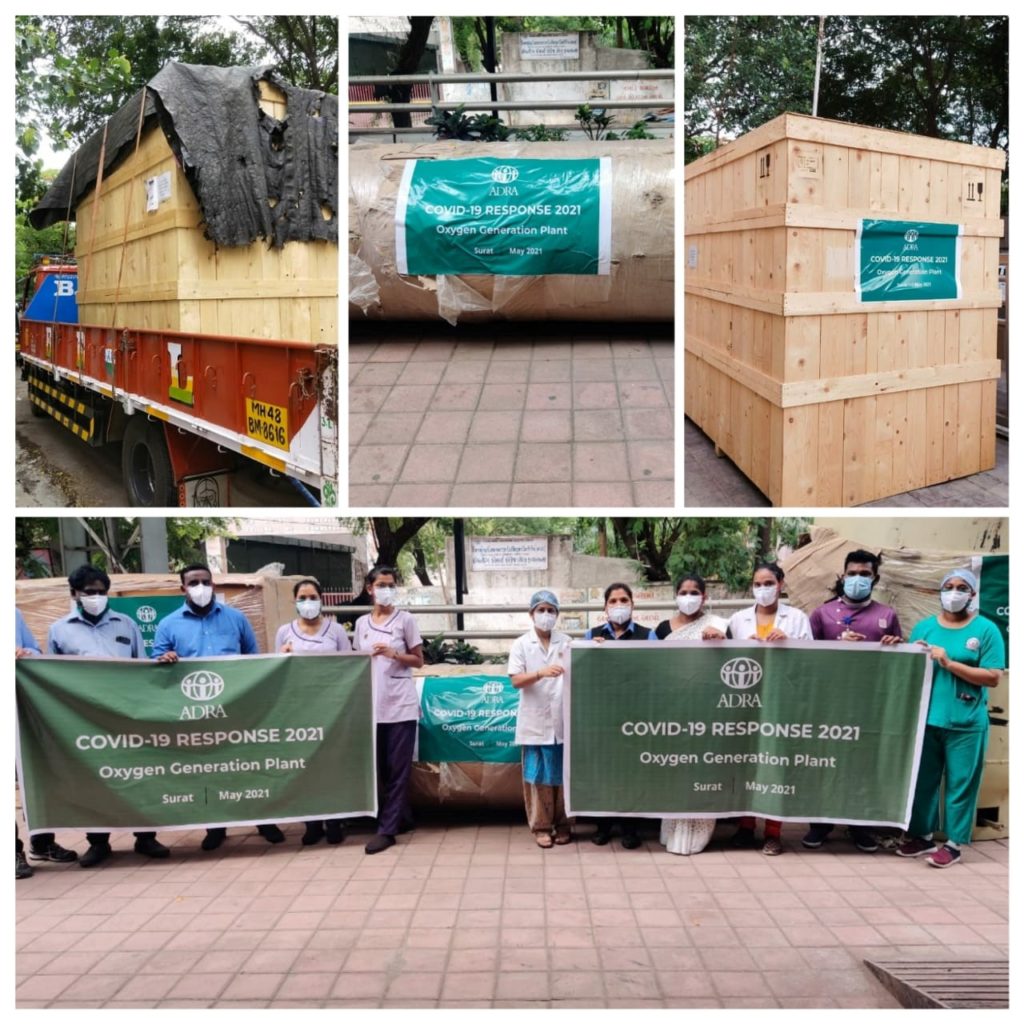
Working through AdventHealth Global Missions, we were able to secure and ship five pallets of surgical masks, respiratory circuits and ventilators to Southern India in June. They were also able to connect us with the Adventist Development and Relief Agency (ADRA), a humanitarian organization based in Maryland and operated by the Seventh-day Adventist Church.
Working with ADRA, we set a goal to help them raise enough funds to provide eight hospitals in India with medical oxygen-generating plants. These plants not only met the immediate need, but also ensured the hospitals could meet their long-term oxygen needs as well. The first oxygen-generating plant was quickly established at a hospital in the western Indian city of Surat over the summer, and three more plants are currently in progress.
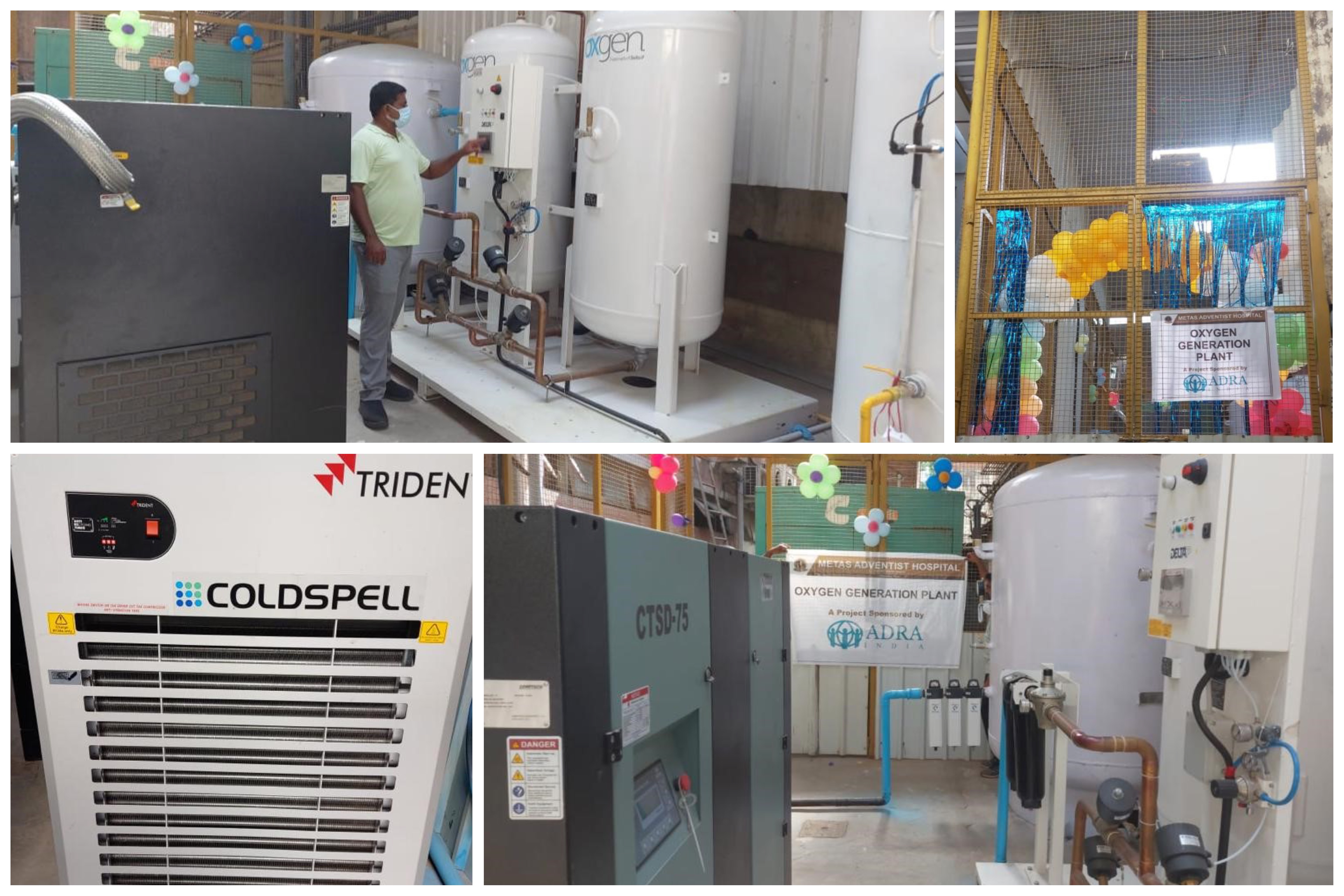
Maintaining Global Health Connections to Extend Compassionate Care
While the COVID-19 pandemic has touched us all in different ways, its effects were felt across the globe, demonstrating just how connected we truly are. The immediate, crushing crisis may have waned, but no doubt our world will continue to experience viral surges and other health challenges. In the years to come, how can we sustain our cooperative efforts and become more proactive and prepared to respond?
As physicians, we are called to communicate and collaborate for the greater good, for the health of people across our planet. It is the oath we take when we put on the white coat and the core of our basic humanity. We can’t afford to stand on the sidelines and watch medical crises occur even if they are an ocean away. We must harness the power and innovation of the virtual world to bridge our geographic divides so that we can connect, organize and work together on plans and processes to address our most pressing needs and better prepare for those yet to come. We must forge new international forums to discuss best practices and develop new ideas. And most importantly, we must continue to share our strengths — our medical expertise, financial resources, leadership skills and intellectual capital — to help each other and find new solutions to our greatest healthcare challenges. Embracing our strength and the common good, our medical communities will continue to advocate for humanity. ■
Photos provided by AdventHealth Orlando’s marketing department
This article is part of the following sections:

